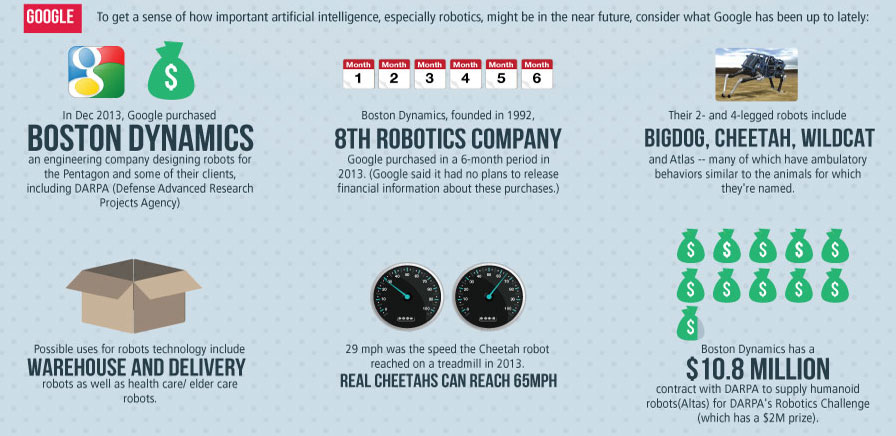
Robohub.org
Brainlike computing: Something big is happening

This infographic on the state of AI by BestComputerScienceDegrees.com doesn’t reflect the recent Nest Labs acquisition by Google. Nevertheless one can see that speedy computers and libraries of digital experiences are starting to crack human skills like information summarization and language processing. A new series of chips facilitating biological machine learning will be coming to market later this year.
According to a NY Times story, the chips will be used mostly by researchers at first and then in smart machines later.
Researchers will use the chips to further study new artificial intelligence systems that can simultaneously process their primary task and absorb new information, and adjust what is being done based on the changing signals. When combined with smart machines and machine-learned AI, as was seen last week in at CES in Las Vegas, the resulting smart machines will soon automate many tasks, redesign jobs, and do things never before possible.
The largest class at Stanford in 2013 attests to the importance of these new technologies. The class was a graduate machine-learning course covering both statistical and biological approaches to this new form of AI, taught by the computer scientist Andrew Ng. More than 760 students enrolled.
See the full info graphic:

tags: Algorithm AI-Cognition, c-Education-DIY



